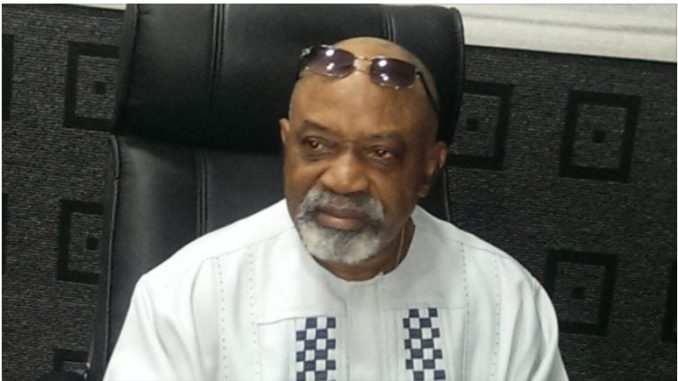
The battle for the full implementation of the new minimum wage has moved to the states following the Federal Government’s conclusion of negotiations on consequential adjustments of salaries of higher income earners with the Joint National Public Service Negotiating Council.
Under the agreement, workers on salary Grade Level 07 received 23.2 per cent pay rise; those on GL 08, 20 per cent; and GL 09 got 19 per cent. Officers on GLs 10 to 14 got 16 per cent hike, just as levels 15 to 17 officers had 14 per cent upward review. Together with consolidated salary structures of universities, polytechnics and colleges of education, federal monthly wage bill currently stands at N611 billion. And a directive has been given to the ministries, agencies and departments to ensure that arrears of the new wage regime from April when the Act came into effect be cleared before the end of December.
After the FEC meeting that ratified the deal, the Minister of Labour and Employment, Chris Ngige, said, the council directed “…that the National Salaries, Income and Wages Commission and the Ministry of Labour and Employment should send the consequential adjustments table down to the state and local governments as an advisory document for their information and guidance for their National Joint Public Service status in their respective states because the national minimum wage is a national law.”
All this has enormous pressure on the states, which met shortly to review the situation. The governors, under the aegis of Governors’ Forum, have ruled out any imposition of the federal template on the states. The NGF Chairman, Kayode Fayemi of Ekiti State, said “There are different issues at states level. Every state has its own trade unions and joint negotiation committee and they will undertake discussions with their state government.” This is the ideal.
The N30, 000 minimum wage has come to stay for the states as they were part of the tripartite committee that fixed it. But the NGF chairman stressed that while such wage review compels consequential adjustment, it is imperative for all concerned to appreciate that what is primarily involved is minimum wage review, not a general wage increase.
While wage adjustment is non-negotiable, prevailing high inflationary pressure has also made it unavoidable for the states. However, they should do so based on their resources or capacity to pay and size of their workforces.
Available official statistics demonstrate the fact that states have different financial capacities, which, invariably, impact on governance or policy trajectories. The National Bureau of Statistics, for instance, indicate that the January to June summary of internally generated revenues for these states are as follows: Lagos – N205.16 billion; Rivers – N75.97 billion; Osun – N10.2 billion; Kebbi – N4.72 billion; Taraba – N3.27 billion, Yobe – N2.2 billion; Gombe – N2.08 billion and Ebonyi N5.14 billion. Therefore, it will be unreasonable for negotiation committees in Yobe and Gombe states to expect their workers to have pay parity with their counterparts in Lagos and Rivers states. These are economic imperatives of federalism.
In the United States, an archetype of a federal system, wage differences exist from state to state because of their uneven resources or abilities. A report of the US National Conference of State Legislatures dated July 2019, stated that 18 states began the year with higher minimum wages. Eight states – Minnesota, Florida, New Jersey, Ohio, Alaska, Vermont and South Dakota – increased the minimum wage as a result of increasing cost of living. But 10 others among them, California, Massachusetts, New York and Washington, raised their rates based on earlier legislative approval.
The JNPSNC, which met with their counterparts from the 36 states on Tuesday to mentor them on the intrigues or strategies to avoid being outfoxed by state governments, should be conscious of this fact. National interest and reason are crucial.
But states, which are still on budget life support from the Federal Government, and have yet to thoroughly cleanse their monthly payroll through the Integrated Payroll Personnel Information System to remove ghost workers and pensioners are already in a blind alley. Also, not streamlining of the MDAs to free them from over-lapping functions and workers redundancy; maintaining wage bills that outweigh monthly revenues and governors with high number of needless aides compound the mess.
Payroll fraud is a monstrosity, which government at all levels must exorcise from public service, supported by the organised labour. Bayelsa has tamed this scourge considerably going by the N3.9 billion it saved annually from its eight local councils’ payrolls purge. Nembe council’s wage bill was reduced from N127million to N99 million; Yenagoa N194 million to N147 million; Southern Ijaw N201 billion to N131 million, among others. Kaduna State has also done well in this regard, to the point that it is one of the few states whose capital expenditures have risen above recurrent.
But whether it is in Kaduna, Bayelsa or elsewhere, a root-and-branch approach is required for the reforms to endure by ensuring the syndicates face maximal penal hammer. States are supposed to be vibrant economic units in a federal polity as the regions they replaced were in the First Republic. Lack of creativity in governance, however, is why the huge agricultural potential and 34 confirmed solid mineral types spread across the states are untapped. This anomaly should be reversed. A recent revelation by the Governor of the Central Bank of Nigeria, Godwin Emefiele, that Nigeria made $23 billion from crude sales in 2017 while Malaysia harvested $22 billion from the sale of palm oil, should inspire acute reflections by states so endowed with the resource, but prefer to rush to Abuja monthly for money. Emergent economic realities are indeed ominous and require corresponding response.
END

Be the first to comment